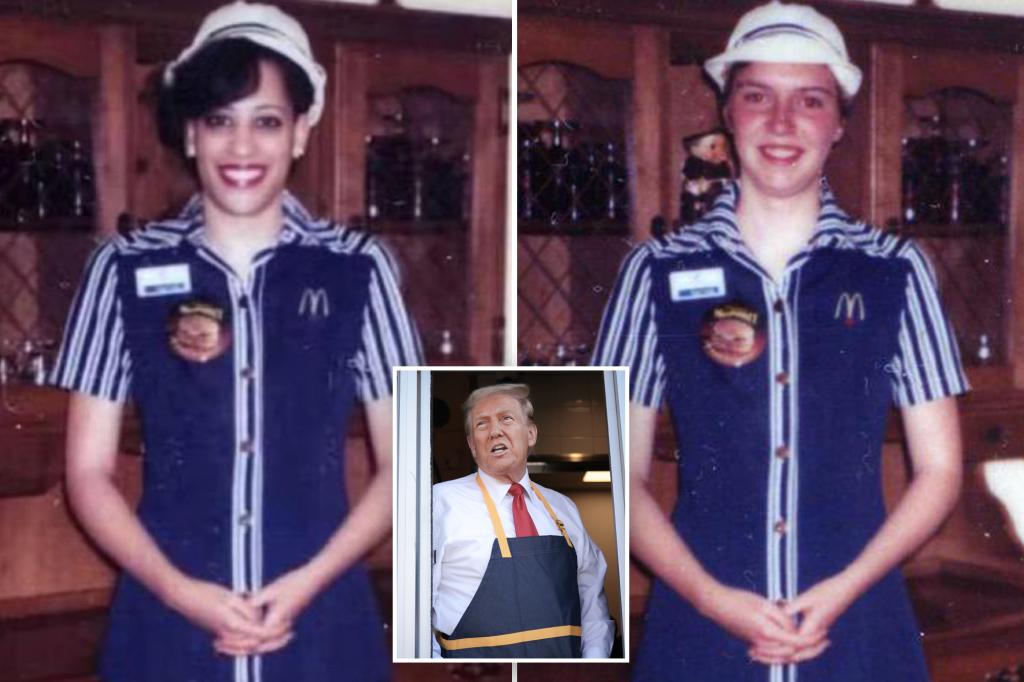Left-leaning influencer Billie Nelson recently called out Donald Trump and his supporters for sharing altered images of the former president after she herself mistakenly shared a doctored image of Kamala Harris in a McDonald’s uniform. Nelson criticized MAGA supporters for perpetuating false information, highlighting the need for truth in the digital age.
The altered image of Harris quickly went viral before fact-checkers stepped in to correct the case. Social-media users had superimposed Harris’ face on a Canadian woman named Suzanne Bernier, who died from cancer in 2007. Former West Virginia State Delegate Derrick Evans shared the image of Harris alongside the original picture, pointing out the deception involved in manipulating the photo.
Trump had accused Harris of lying about working at McDonald’s in 1983 while she was pursuing an undergraduate degree at Howard University. Although McDonald’s stated they were unable to verify Harris’ employment, the fast-food chain acknowledged the shared experience many Americans have had working at their establishments. The “1 in 8” statistic highlights that many people have worked at McDonald’s at some point in their lives.
In response to the criticism of sharing manipulated images, Nelson emphasized the importance of truth and apologizing when mistakes are made. She acknowledged her own error in sharing the doctored image of Harris and urged others to do the same. Nelson criticized Trump for his lack of truthfulness and suggested that his supporters should hold him accountable for spreading false information.
Journalist Andy Ngo also brought attention to the viral faked image of Harris in a McDonald’s uniform circulating on social media. Ngo highlighted the dangers of spreading misinformation and emphasized the importance of fact-checking in an age where false information can quickly go viral. By sharing accurate information, Ngo aims to combat the spread of false narratives online.
Overall, the incident involving the doctored image of Harris serves as a cautionary tale about the dangers of sharing false information on social media. It also highlights the need for increased fact-checking and accountability to prevent the spread of misinformation. As influencers like Billie Nelson speak out against the sharing of altered images and false narratives, it is essential for individuals to verify information before sharing it online. In a digital age where information spreads rapidly, it is crucial to prioritize truth and accuracy in order to combat misinformation effectively.


